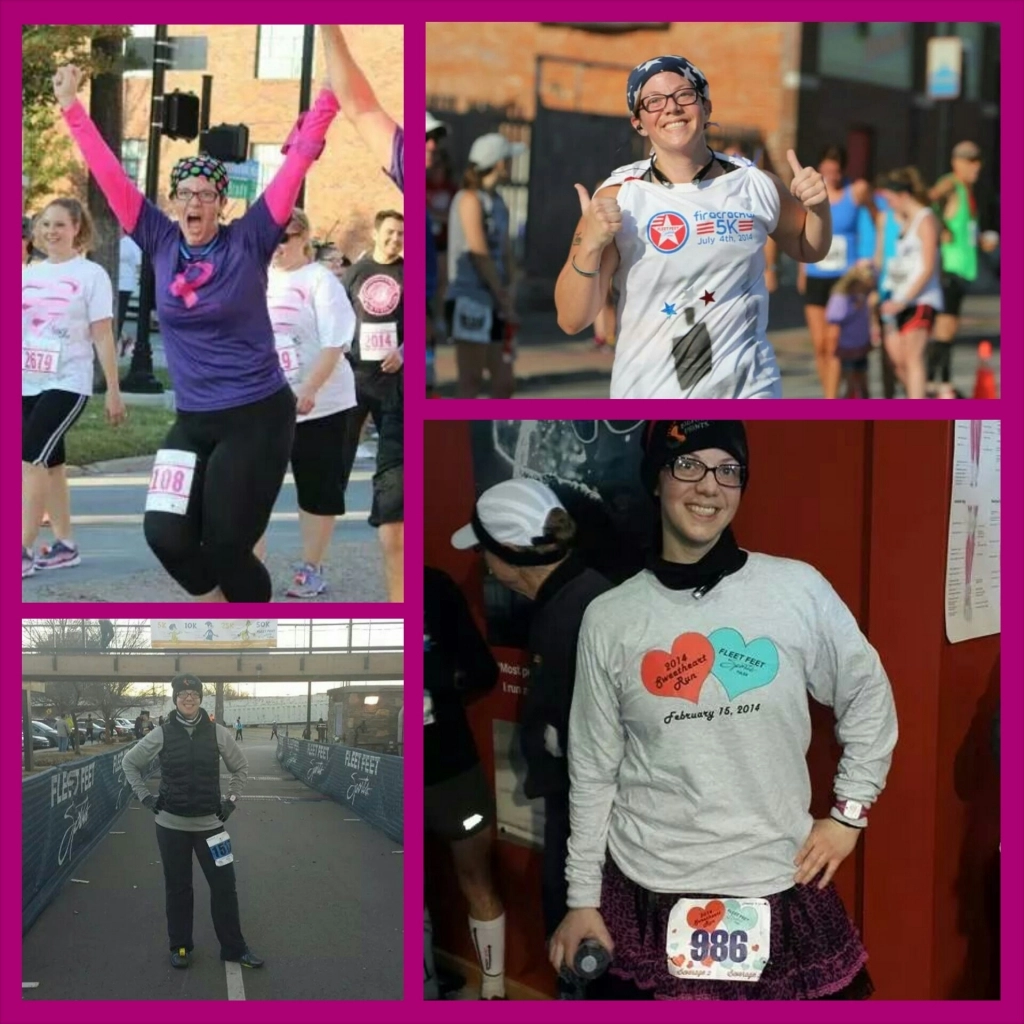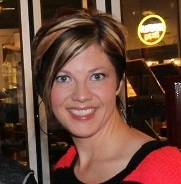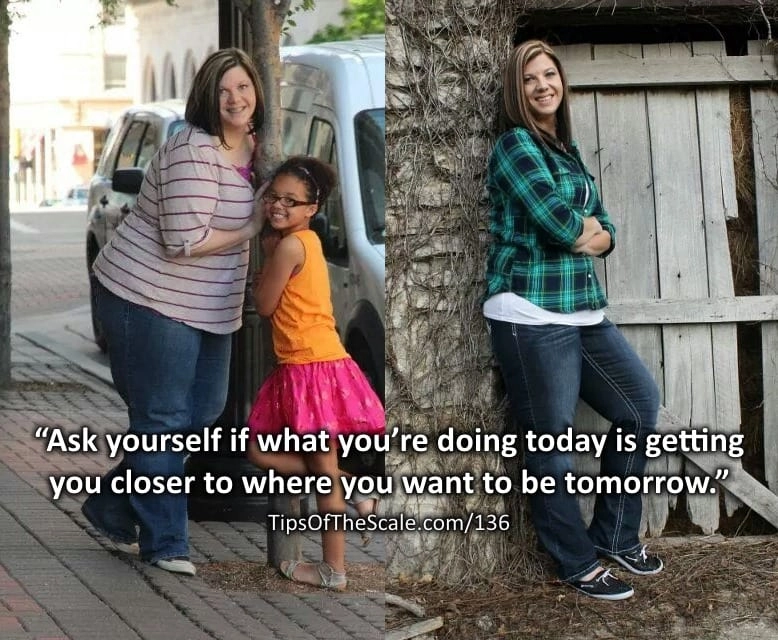Tenika was “always the funny fat girl” but knew that her health issues would eventually catch up with her. What she learned about forgiveness to drop 120 pounds.
“Ask yourself if what you’re doing today is getting you closer to where you want to be tomorrow.”
Weight Gain Background and Contributing Factors
When Tenika was in 6-7th grade she played basketball and while dressing in the locker room she noticed she was bigger than her peers. At that time she was around 5’6” tall and 170-180 pounds. (77.2-81.8 kg) By her senior year of high school Tenika weighed 320 pounds. (145.5 kg) Tenika shares that her mom was overweight her whole life, and planted a seed in Tenika’s mind that when a person is heavy the world will look at that person’s weight instead of that person’s personality and spirit. This thought plagued Tenika for many years. Tenika’s highest weight was while she was in college, at 340 pounds. (154.5 kg)
How Being Overweight Impacted Tenika’s Life
Tenika says she felt like she was picked on a lot in middle and high school because of her size.
“I always felt like someone was talking about me… Even if they weren’t.”
 Due to her size, Tenika missed out on lots of social events, never felt like she fit in, and always thought others were judging her. Fortunately, for some reason in college it clicked in that others weren’t actually talking about her, and Tenika quit worrying about what others might think. Tenika was active even though she was heavy, and she worked full time as a nurse. Since her weight gain started so early in life, Tenika says it wasn’t until after she lost weight that she discovered some of the physical things she hadn’t been able to do. Tenika began having a lot of health issues—high blood pressure, hypothyroid, and insulin resistance. She went to a doctor to see about her increasing heart rate and after an echocardiogram she discovered her heart was enlarged. As a nurse, Tenika knew she was at risk of atrial-fib, in which the top part of your heart doesn’t pump blood correctly, and causes major risks and lifelong complications. She knew that if she didn’t make a change, this diagnosis would negatively impact her life forever.
Due to her size, Tenika missed out on lots of social events, never felt like she fit in, and always thought others were judging her. Fortunately, for some reason in college it clicked in that others weren’t actually talking about her, and Tenika quit worrying about what others might think. Tenika was active even though she was heavy, and she worked full time as a nurse. Since her weight gain started so early in life, Tenika says it wasn’t until after she lost weight that she discovered some of the physical things she hadn’t been able to do. Tenika began having a lot of health issues—high blood pressure, hypothyroid, and insulin resistance. She went to a doctor to see about her increasing heart rate and after an echocardiogram she discovered her heart was enlarged. As a nurse, Tenika knew she was at risk of atrial-fib, in which the top part of your heart doesn’t pump blood correctly, and causes major risks and lifelong complications. She knew that if she didn’t make a change, this diagnosis would negatively impact her life forever.
The Turning Point
The very next week, Tenika attended a seminar for information on gastric bypass surgery. (Her mom had had the procedure 10 years prior). Tenika had the procedure done in January of 2013 at the weight of 290 pounds. (131.8 kg) In preparation for the surgery Tenika underwent a battery of tests, lab work, psychological and physical evaluations, and nutrition counseling. During this preparation, Tenika discovered that she’d also been suffering from sleep apnea. Because her mother had gone through the same surgery and recovery a decade before, Tenika knew what to expect and says she understood that the surgery wasn’t an “end all, be all” solution. She knew that she would have to eat and exercise in a completely new way after the surgery. She viewed the surgery as a “tool” to get where she wanted to go, rather than the finish line.
Recovery and Starting Fresh
Tenika shares that she saw her mom only exercised for a little while after her surgery, and that her mother still suffers today from high blood pressure even though she had a successful gastric bypass. Tenika wanted her own recovery to be different, so she began exercising in March of 2013 and walked her first 5K only 3 months after her surgery.  Tenika says that as a nurse she knows success is based on:
Tenika says that as a nurse she knows success is based on:
“80% nutrition, and about 20% exercise. 100% your will.”
As to recovering from surgery, Tenika says: “I felt like a baby,” because after the gastric procedure a patient has to start back eating with using just liquids, working over the course of a year to eat solid foods.
Staying Motivated
Right after her first 5K Tenika started Zumba classes. In August of 2013 she started a couch to 5K program. While she couldn’t even run for 60 seconds at the beginning, now she can run for 6 miles in a row. Tenika started weight training in November 2013. She shares that putting on lean muscle from lifting weights feels “empowering.” 
What Tenika Learned About Food, Exercise, and Herself
Tenika says she had more inner self issues rather than problems of others dealing negatively with her appearance before. Now, almost two years out from her surgery, Tenika says she feels a lot more confident. She feels more relaxed and calm in all areas of her life, and no longer feels like she has to “compensate” for her weight by being funny. Another key change is Tenika’s newfound ability to more easily forgive herself. She has learned how to—so to speak—‘Eat a cookie and move on.’ Since she has become more active, Tenika notices the circle of people she hangs around with has changed somewhat. She says this is not in a reaction to her losing weight, rather a function of finding people who want to accompany her and her 10 year old daughter in active things like riding bikes or jumping on trampolines. Her family members consult her now with questions about fitness. Tenika says that she has learned more how to listen to her body to fuel it how it needs—when she feels a food gives her a headache or a stomachache or gets bloated, she knows to avoid that food in the future. For the most part Tenika now focuses on ‘clean eating,’ with a focus on protein, veggies, fruit, and a little bit of oatmeal. She eats this way even when they go out to a restaurant. Although it was challenging, Tenika completely gave up bread and pasta. Tenika credits a fitness retreat with Andrea of Imperfectlife.net (and episode 108) for giving Tenika new ideas about how to make healthy cooking easier for her schedule, and how to ask for what you want at restaurants. Even though her cholesterol numbers were in the normal range before the surgery, Tenika says that now due to her clean eating they have improved even more. If Tenika could go into the past, she would emphasize to her younger self that the number on the scale is not what’s important, it’s not a reflection of you. It’s how you feel and what you are doing for yourself that is important. 
Going Forward
Tenika lost 120 pounds (54.5 kg) and is currently in maintenance. She eats between 2000-2500 calories each day and is very active. She participates in lots of obstacle course races and is training for more. Currently, 4-5 times each week Tenika does a 20 minute cardio warm-up and then lifts, working to strengthen her upper body. All her health markers are fine and she feels good. She says the biggest challenge she’s had to overcome is: “my brain.”
Tenika’s Advice For Your Journey
- Listen to your body, no one person is the same.
- Make one small change at a time, instead of trying to change everything at once.
Resources Discussed In This Podcast
- Imperfectlife.net by Andrea from Episode #108
- Shawn Stevenson Model by Shawn from Episode #98
- Map My Fitness app
- My Fitness Pal online calorie-tracking and community
- Race Addict app for Android and Apple/IOS devices
- Bailey Bariatrics
On Tenika’s Workout Playlist
- Ice Ice Baby by Vanilla Ice [ Amazon / iTunes ]
- All about that Bass by Meghan Trainor [ Amazon / iTunes ]
- Work B**ch by Britney Spears [ Amazon / iTunes ]
Contacting Tenika
- Facebook: fb/Badass-Fit-Mom
- Twitter: @Nikarjc
- Instagram: @nikarjc
- Pinterest: nikarjc
Edit: Tenika and her daughter were featured in this article, too: http://www.baileymedicalcenter.com/news/power-good-example-one-mothers-goal-pass-healthy-living






You must be logged in to view comments.